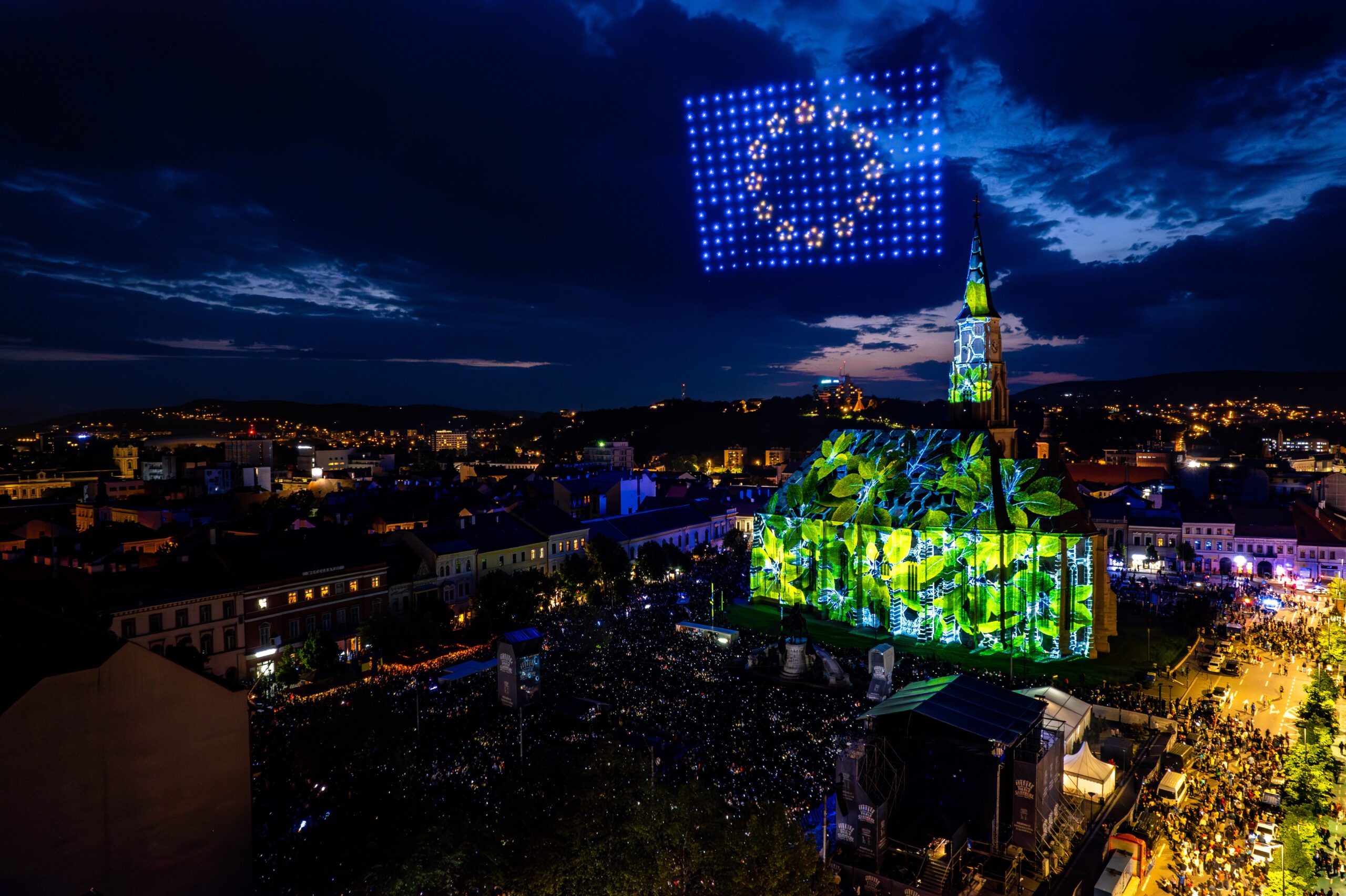As you may be aware, Cluj-Napoca is a city where the local identity harmoniously blends with European values, which are held dearly by the local authorities as well as by the citizens of ”the friendliest European City with Foreigners” (Eurostat 2015). We have been selected as one of the 100 cities that are part of the “Mission Cities” of the European Union (2023), as well as adhered to the “Green City Accord” (2022). Recently, we were included in the top 10 cities in Europe in terms of the quality of life of the inhabitants from 83 cities in the European Union (2024).
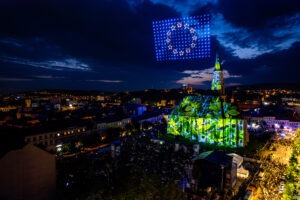
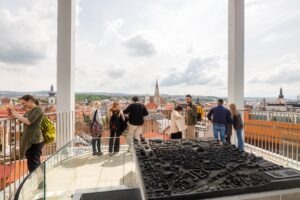
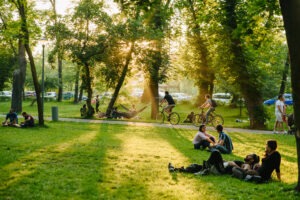
Tourism and economy
Cluj is the city with the fastest economic growth in the European Union in the last two decades, according to the World Bank – Cluj’s GDP increased 4.5 times in 20 years. The municipality positions itself as an innovation and IT hub, with services being the main branch of the economy. In particular, Cluj-Napoca excels in four transnational fields: information technology & communications, business support services, engineering & research & development, and financial services. European funds are a priority for the local administration, in 2024 two-thirds of the municipality’s development budget will come from external – national and European funds.


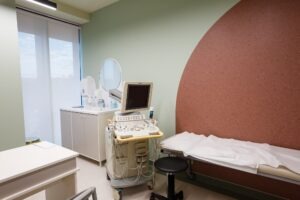
Tourism generates revenues of 175 million euros in one year in Cluj-Napoca, registering a record number of 496,360 tourists in 2023 according to the official figures of the INS. Cluj is recognized for the dynamics of the cultural sector, being also the place where some of the biggest and most important festivals of Romania take place, such as TIFF – Transilvania International Film Festival, Untold, Electric Castle, Jazz in the Park.
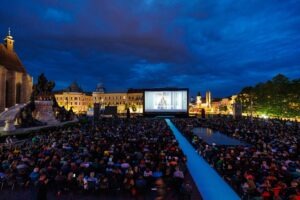
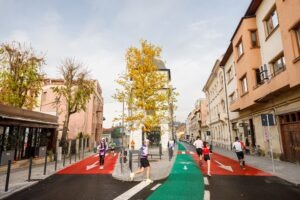
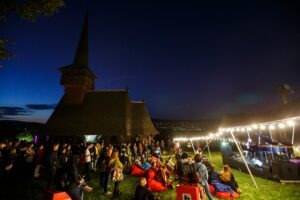
Environment and education
A major competitive advantage of Cluj is its well-trained human resource, given its position as a university center of excellence, with tens of thousands of students who are trained here every year. Education is a priority for the local administration, with over 230 million euros invested in recent years to increase the quality of the educational process and dozens of other projects in various stages of preparation.
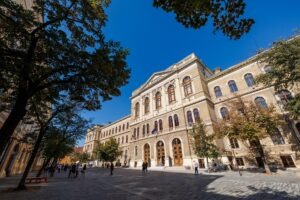


Regarding the environmental component, Cluj-Napoca is part of the Mission of 100 Climate Neutral Cities (being among the first 10 at the EU level that received the title of the Mission), the Agreement for Green Cities and other European networks that aim to implement European Green Pact. The city is expanding and revitalizing over 190 ha of green spaces, has the goal of planting 100,000 trees and a 100% electric, ecological public transport fleet by 2030. Currently 50% of the public transport fleet is electric, non-polluting. In 2024, 18 new articulated electric buses will enter circulation, being the first city in Romania to have electric buses in circulation. In recent years, the municipality has expanded the public transport infrastructure, the bicycle and pedestrian infrastructure, respectively the one for (car) electric vehicles. The administration has invested tens of millions of euros from European and local funds for the creation of new parks and the revitalization of the banks of the Someș, in order to create a green-blue corridor of alternative mobility.

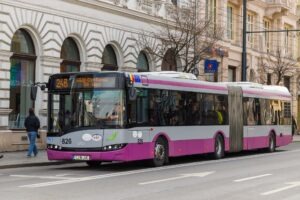
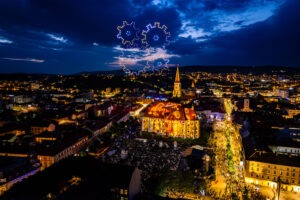
Excellence
According to the European Commission, Cluj is among the top 10 cities in Europe in terms of quality of life. Eurostat also points to the fact that 73% of respondents to the recent study believe that it is easy to find a good job in the city, and 59% stated that compared to the situation 5 years ago, the quality of life in the city has increased. Also, last year Cluj-Napoca received the European Commission’s green label for its sustained efforts towards climate neutrality, being among the top 10 in the EU. with this distinction. The city of Cluj-Napoca is also in the top 10 safest cities in Europe. Cluj-Napoca was named the first place winner in the Emerging Europe program, “smart city” category (2021).
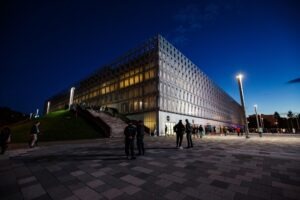
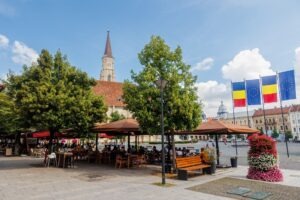
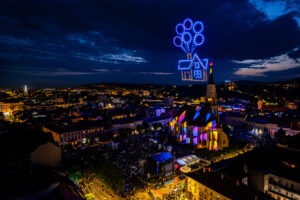
European Funds and Cohesion Policy
The European funding represents a guarantee for our city, ensuring a higher quality of life and a European way of living. Since Romania’s accession to the European Union until now, the City Hall has successfully implemented projects worth over 500 million Euros. Additionally, ongoing projects exceed 100 million Euros, with plans for future projects totaling over 2.6 billion Euros, including the development of a metro system, a metropolitan beltway, a metropolitan train, and over 30 other initiatives.
The projects already implemented in Cluj-Napoca aim to improve mobility and accessibility in all neighborhoods, expand green spaces, support active measures for economic and social development, enhance performance in local administration, and last but not least, promote a European lifestyle model.
The creation of a green-blue alternative mobility corridor along the Someș River and the development of the green dimension of the city
One of the most valuable projects developed in recent years targets the banks of Someșului Mic, expands the green areas of the municipality and contributes significantly to the increase of the quality of life in Cluj-Napoca. The project for the rehabilitation of the banks of the river that crosses Cluj (on an area of 14.6 hectares) is completed by the investment projects for the creation of two new parks adjacent to the river, the Feroviarilor Park (5.3 hectares) and the Armătura Park (3.25 hectares).
Financed with European funds, the Malurile Someșului project covers 14.7 km on both banks of the river (an area of 146,500 sq m), with over 950 new trees planted, the creation of a bicycle-pedestrian corridor, new tracks for cyclists, a new pedestrian walkway over river, play, relaxation and sports areas, including an urban beach. The project is based on the result of an international competition of solutions organized by Cluj-Napoca City Hall together with the Order of Architects from Romania and OAR Cluj Branch in which specialists in architecture, urban planning, landscaping, etc. participated. from several European countries.
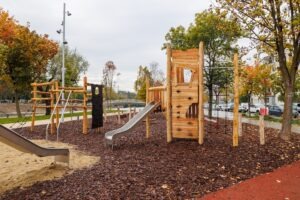
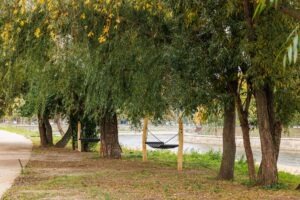
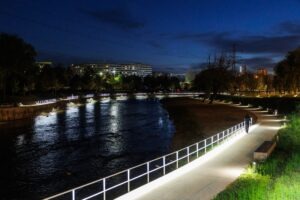
Part of the works aimed at exploiting the potential of the Someș River and the related green-blue corridor is the new Armătura Park, of 3.25 hectares – an investment financed with European funds. The impact of creating these green areas is significant, especially for the residents of the north-eastern area of the municipality, the river being almost inaccessible before the implementation of the project. More than 200 new trees were planted, the pedestrian and cycling infrastructure on the banks of the river was modernized and expanded, respectively a pedestrian and bicycle bridge was built over the Nadăș stream.
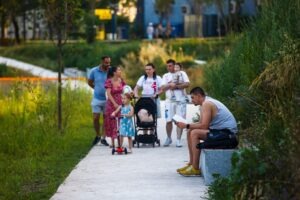
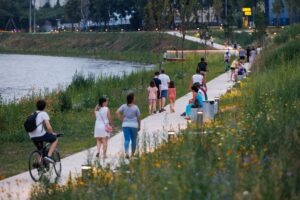
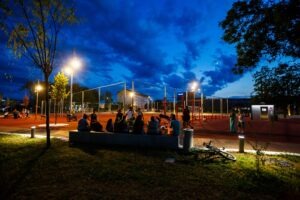
Lawns were installed in all areas, charging stations for cars, bicycles and electric scooters were placed, new energy-efficient lighting systems with LED source, new urban furniture, integrated into the space from a landscape perspective, and new playgrounds were created. At the same time, the investments were carefully considered for the needs of people with disabilities. Wireless networks with free internet access were also put into operation.
Green Cluj is not just a concept, but a clear direction that the Cluj municipality has taken, with the objective of increasing the quality of life in the city. By 2030, Cluj-Napoca City Hall has set out to plant 100,000 trees and continues to invest the necessary resources to create and revitalize over 190 hectares of green spaces in Cluj-Napoca.
Top tier educational infrastructure
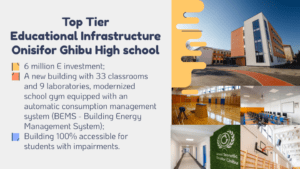
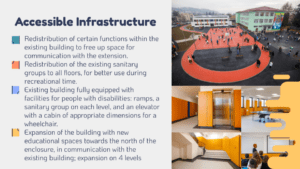
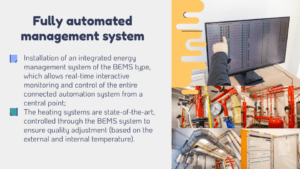
The project regarding the modernization of the historic center of the city includes the pedestrianization of several sections of streets in the mentioned area, on which access for cars will be open only to residents or in emergency situations, and cyclists will be able to ride together with pedestrians, in the so-called concept of “shared space”
The section of M. Kogălniceanu Street between Hermann Oberth Street and Gaál Gábor Street is being transformed into the basis of the “urban garden” concept by removing the pavement and degraded lawn. They will be replaced by a multilayer of compacted and stabilized gravel. Trees will also be planted in several areas included in the project, and the existing public lighting systems will be upgraded with LED systems and poles integrated into the urban landscape. Following with charging stations for bicycles and electric scooters, modern urban furniture, racks for bicycle parking will be installed – as in the recently completed infrastructure projects.
On Kogălniceanu Street, it is proposed to integrate a tribute representation on the “carpet” intended for access to the University building, dedicated to the rectors of the Cluj University from its origins to the present.
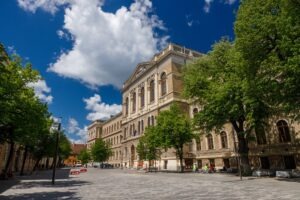
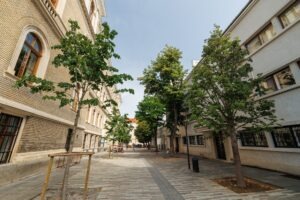
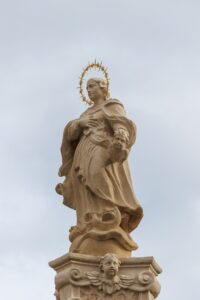
On University Street, the statue of “Saint Mary the Protector” (transmuted in 1957) was returned to its original location and a small square was created on the site of the old parking lot.
Eurocities 2024
Being held one week before the European Parliament elections, the conference presents a unique opportunity for city leaders to share their experiences and expectations for the next five years. It aims to form a strong alliance with the upcoming European Parliament and Commission to shape the future of our continent and the planet. Eurocities 2024 Cluj-Napoca will showcase how cities are becoming greener, more innovative, and more resilient by nurturing local ecosystems and talents.
